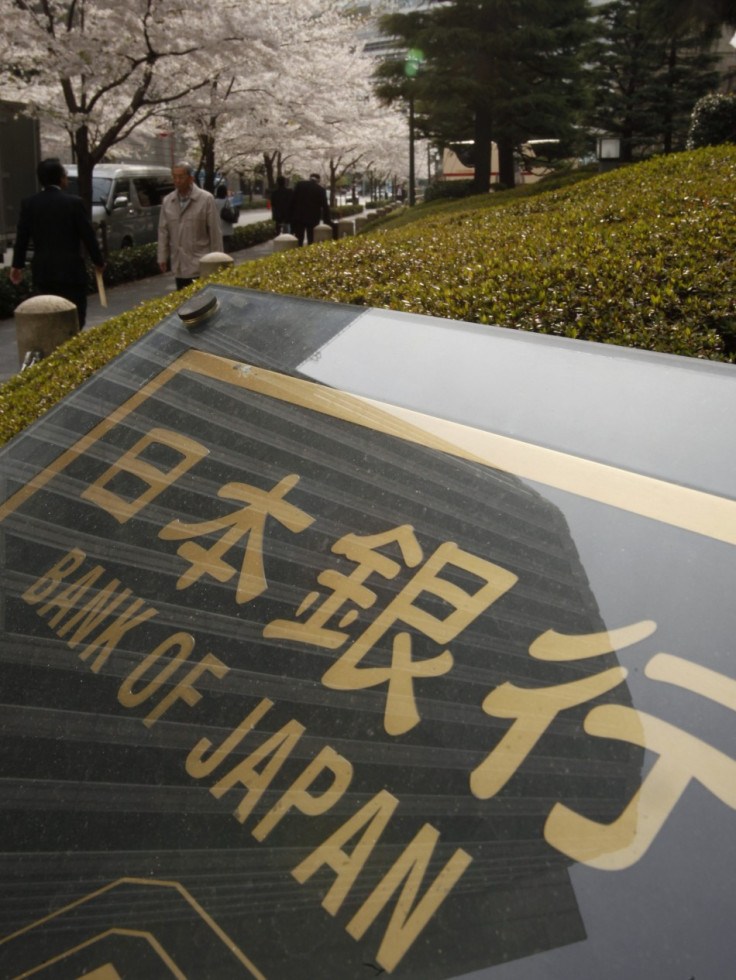Japan's Economic Recovery Stalls as China Protests, Global Slowdown Threaten Exports

Japan's economic recovery will be delayed by around six months as global demand stalls and Europe's sovereign debt crisis continues, the country's top central banker warned Wednesday after surprising analysts with an early re-start of an 80tn yen (£622bn) programme of quantitative easing.
Bank of Japan Governor Masaaki Shirakawa announced a surprise increase to the bank's asset purchase programme (APP) earlier today, targeting as much as 10tn yen in treasury bill and Japanese government bonds and removing a ceiling on prices to allow the BoJ to act more aggressively in open market purchases. The BoJ's benchmark interest rate band was held at between zero percent and 0.1 percent.
The APP increase, however, surprised analysts and investors, who expected the BoJ to wait until its 30 October outlook report - known colloquially as the Tankan - before taking a decision on further monetary easing.
However, recent moves by the US Federal Reserve to add around $40bn each month to its own quantitative easing strategy and a pledge by the European Central Bank to conduct an unlimited amount of bond purchases in the government bond market to help ease the borrowing costs of struggling euro currency partners seems to have tipped the BoJ's hand.
The yen has risen more than 5 percent against the US dollar in the past six months as investors reduced the value of the greenback in anticipation of further Fed easing while the Euro has lost 2 percent against the yen as the region's debt crisis has pushed many traders into more stable currencies. The twin impacts have threatened international trading in the export-oriented economy.
The yen fell to four-week low of 79.22 against the US dollar immediately following the BoJ announcement while the benchmark Nikkei 225 stock index jumped 1.2 percent to 9,232.2, the highest closing level since May.
"We judged that further monetary easing was necessary now to ensure that Japan's economy does not slip from a path towards sustained growth with price stability," Shirakawa told a news conference following the bank's decision. He denied suggestions, however, that he and his colleagues were influenced by the ECB or Fed decisions and shrugged off the idea that recent anti-Japan protests in China were a factor in the surprise move.
"Each central bank decides monetary policy based on what is necessary for their own economy," he said. "I do not think any central bank would act simply because another central bank acted. If it is a question of comparing the BOJ to the Federal Reserve or the European Central Bank, I think the issue is not of methods but of the impact of those methods."
Japan's trade with China, which amounts to around $340bn each year, could slow sharply if the recent spate of protests over the sovereignty of the Diaoyu islands intensifies. Japan's three largest automakers have said some their China-based dealerships have been attacked by protestors while Suzuki has suspended operations of one of its motorcycle factories.
Finance Minister Jun Azumi said he welcomed the BoJ's actions, which he said were "bolder" than anticipated and come amid a marked slowdown for the Japanese economy. Growth slowed to 0.7 percent for the three months ending in June, after having been first assessed at 1.4 percent. RBS economists expect growth of no more than 0.5 percent and 0.6 percent for the final two quarters of the year.
© Copyright IBTimes 2025. All rights reserved.





















